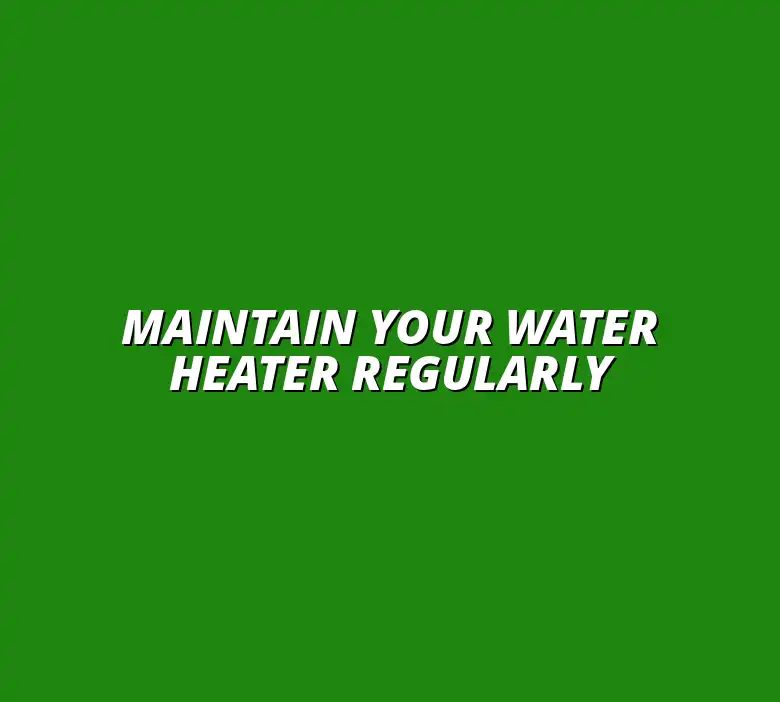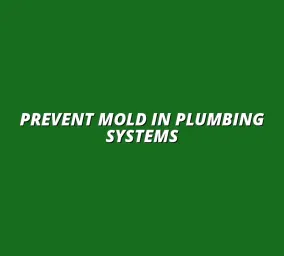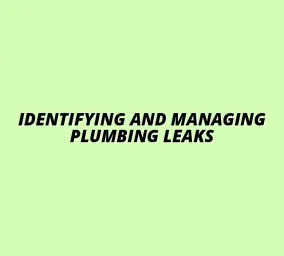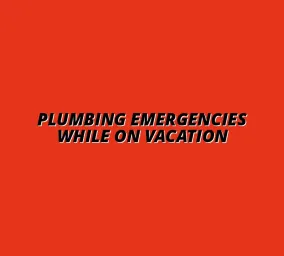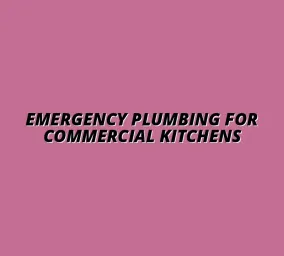Maintain Your Water Heater Regularly
The Significance of Regular Water Heater Maintenance
Water heaters play a crucial role in our homes, providing hot water for various daily activities. Regular maintenance of water heaters is essential to ensure they operate efficiently and last longer. By understanding the importance of this maintenance, homeowners can avoid unnecessary expenses and keep their water heaters running smoothly. For more general plumbing maintenance tips, check out these plumbing maintenance tips for homeowners.
Understanding Water Heater Functionality
To appreciate the importance of maintenance, it’s vital to understand how water heaters work. Water heaters heat water using either gas or electricity and keep it at a certain temperature, making it ready for use. This process involves various components, including the heating element, thermostat, and tank, all of which need to be in good condition.
The Role of Water Heaters in Our Daily Lives
Water heaters are often taken for granted, but they significantly impact our daily routines. Without them, simple tasks such as showering, washing dishes, or doing laundry would be quite challenging. Keeping them well-maintained ensures we have hot water whenever we need it! Regular maintenance can also help prevent plumbing emergencies, such as emergency plumbing for water heater leaks.
Common Types of Water Heaters
There are several types of water heaters available, each designed for different needs. Here are some of the most common types:
- Tank Water Heaters: These store a large amount of hot water for immediate use.
- Tankless Water Heaters: Also known as on-demand heaters, they heat water only when needed.
- Heat Pump Water Heaters: These use electricity to move heat from one place to another instead of generating heat directly.
- Solar Water Heaters: These utilize solar energy to heat water, making them eco-friendly.
Reasons for Prioritizing Water Heater Maintenance
Maintaining your water heater is not just about ensuring hot water; it also offers several other benefits that can save you money and hassle. By prioritizing maintenance, you can prevent problems before they start, leading to a more efficient home. Let’s explore why regular maintenance is so essential. Learn more about keeping your water heater running efficiently with these maintenance tips.
Preventing Costly Breakdowns and Repairs
One of the most compelling reasons to maintain your water heater is to prevent unexpected breakdowns. Regular checks can help identify issues like leaks or faulty parts early on. This proactive approach can save homeowners from expensive repairs down the line and provide peace of mind.
Enhancing Energy Efficiency to Lower Utility Bills
Another significant aspect of maintenance is improved energy efficiency. A well-maintained water heater consumes less energy, which means lower utility bills. Here are some benefits of energy efficiency:
- Reduced energy consumption
- Lower monthly bills
- Extended lifespan of the appliance
Key Maintenance Practices for Water Heaters
To keep your water heater functioning well, specific maintenance practices should be implemented regularly. These practices not only prolong the lifespan of the unit but also ensure that it operates efficiently. Let’s dive into some of these key maintenance techniques! For example, regular drain cleaning is essential for overall plumbing health and can prevent future problems. Check out this guide on essential benefits of regular drain cleaning.
Regular Inspection and Cleaning Procedures
Inspections should be part of your routine to catch potential issues early. Regular cleaning can also prevent sediment buildup that can affect performance. Make it a habit to check for any signs of leaks or corrosion every few months!
Flushing the Tank to Remove Sediment Buildup
Flushing your water heater tank is essential to remove sediment that accumulates over time. This sediment can significantly impact efficiency and performance. It’s generally recommended to flush the tank at least once a year to keep it in top shape.
Checking and Replacing Anode Rods to Prevent Corrosion
Another critical maintenance task is to check the anode rods. These rods help prevent corrosion inside the tank by attracting corrosive elements. Here’s what to do:
- Inspect the anode rods every 1-2 years.
- Replace them if they’re significantly corroded.
- Ensure they are made of appropriate materials for your water type.
Signs That Maintenance is Overdue
It’s essential to recognize when your water heater needs attention. Problems can develop over time, and being aware of the signs can help you address issues promptly. Here are some indicators that your water heater may require maintenance. For those in the Birmingham area, you can find reliable plumbing services from a plumber in Billesley, Birmingham.
Identifying Unusual Noises from Your Water Heater
Strange noises, such as popping, rumbling, or hissing, can indicate that there’s an issue. These sounds often stem from sediment buildup or malfunctioning components. If you hear any unusual noises, it’s time to check your water heater!
Recognizing Temperature Fluctuations and Inconsistent Supply
Another sign that maintenance might be overdue is if you experience inconsistent water temperature. If your hot water supply fluctuates or runs out quickly, it might be time to inspect the unit. These issues can often indicate problems within the heater itself that need addressing.
DIY Maintenance Tips vs. Professional Services
Deciding between tackling maintenance tasks yourself or hiring a professional can be tricky. While some tasks can be easily managed at home, others might require expert attention. Let’s discuss when you might handle it on your own and when to call for help! Regular bathroom plumbing maintenance can also prevent costly repairs. Check out these essential bathroom plumbing maintenance tips.
When to Handle Maintenance Tasks Yourself
Many simple maintenance tasks can be performed by homeowners without much hassle. These include:
- Flushing the tank
- Checking the temperature settings
- Inspecting for leaks or corrosion
Taking care of these tasks can save you money and give you a sense of accomplishment!
Indicators that Professional Service is Needed
However, some situations will require a professional touch. If you notice major leaks, persistent strange noises, or issues with heating, it’s best to call an expert. They have the skills and tools necessary to diagnose and repair more complex problems. Remember that preventing frozen pipes is crucial during colder months. Here are some tips on preventing frozen pipes this winter.
Addressing Common Questions About Water Heater Maintenance
How Often Should Water Heater Maintenance Be Scheduled?
It's crucial to establish a regular maintenance routine for your water heater to keep it running smoothly. Generally, I recommend scheduling maintenance at least once a year. However, depending on the type of water heater you own, the frequency might need to change.
Here’s a handy breakdown for the recommended frequency based on common types of water heaters:
- Tank Water Heaters: Annually
- Tankless Water Heaters: Every 1-2 years
- Heat Pump Water Heaters: Annually
In some cases, factors like water quality and usage patterns may influence how often you should schedule maintenance. Always keep an eye on your heater's performance to determine if more frequent checks are necessary!
What Are the Risks of Neglecting Water Heater Maintenance?
Neglecting water heater maintenance can lead to several serious problems. When we forget about regular upkeep, we risk experiencing issues that can be costly and even hazardous. Understanding these risks is vital for any homeowner!
Here are some potential hazards associated with a faulty or poorly maintained water heater:
- Leaks: Can cause water damage to your home
- Corrosion: May lead to a complete breakdown of the unit
- Scalding: Hot water can unexpectedly burst out
- Energy Waste: Higher utility bills due to inefficiency
By scheduling regular maintenance, you can prevent these risks and extend the life of your water heater!
Practical Steps Towards a Maintenance Routine
Creating a Water Heater Maintenance Checklist
A well-structured maintenance checklist is a great tool for ensuring that no important task is overlooked. Crafting your own checklist can help you stay organized and on track with your water heater maintenance.
Here are some essential items to include in your maintenance plan:
- Inspect for leaks and corrosion
- Flush the tank to remove sediment
- Check the temperature and pressure relief valve
- Test the anode rod for corrosion
- Examine all connections and fittings
Regularly updating your checklist can make maintenance feel less overwhelming and more manageable!
Long-Term Benefits of Consistent Water Heater Upkeep
Staying on top of water heater maintenance can bring about significant long-term benefits. Not only does it help in avoiding unexpected repairs, but it also enhances the overall performance of your unit.
Here are some key advantages of consistent water heater upkeep:
- Increased Longevity: A well-maintained unit lasts longer
- Improved Efficiency: Better performance means lower energy bills
- Enhanced Safety: Reduces the risk of accidents or malfunctions
Taking the time for regular maintenance truly pays off in the long run!
Final Thoughts on the Necessity of Water Heater Maintenance
Water heater maintenance may not always be at the forefront of our minds, but it's absolutely essential. Encouraging a proactive approach can save homeowners from headaches down the line. Let's make upkeep a priority!
Don’t wait until something goes wrong; there’s no better time than now to ensure your water heater is in top shape. I urge you to schedule your maintenance appointment today and enjoy peace of mind knowing that your heater is well cared for!

